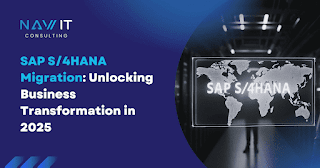SAP Modules Explained — The 2025 Guide Every Professional Should Know

Business chaos starts when systems don’t talk to each other — scattered spreadsheets, missing reports, delayed decisions. That’s exactly why SAP exists. SAP connects Finance, HR, Sales, Supply Chain, Production, and more into one unified system so companies can work smarter, faster, and without confusion. In 2025, SAP has become even more powerful with S/4HANA , cloud solutions , AI , and real-time analytics . Whether it’s finance accuracy, supply chain visibility, production planning, or people management — SAP keeps everything running smoothly. 🔍 Here’s what the blog covers: ✔ What SAP & ERP really mean ✔ Functional & Technical SAP Modules ✔ Core modules like FI, MM, SD, PP, HCM ✔ Cloud tools: Ariba, SuccessFactors, Concur ✔ Industry-specific modules ✔ S/4HANA vs ECC (what’s changing in 2025) ✔ SAP deployment options ✔ Integration methods (IDocs, PI/PO, CPI) ✔ Implementation phases & challenges ✔ Why SAP remains the #1 choice SAP isn’t just software — it’s ...

.png)